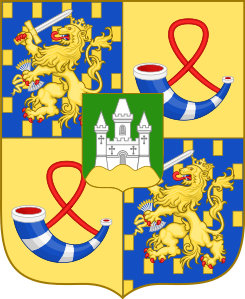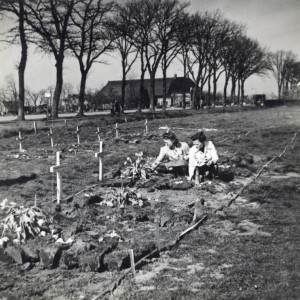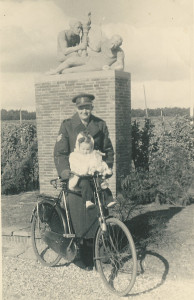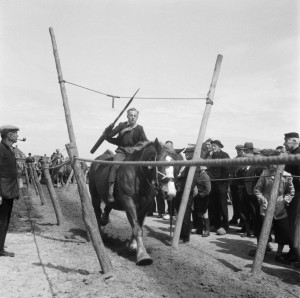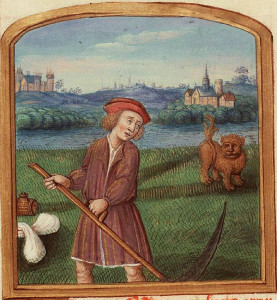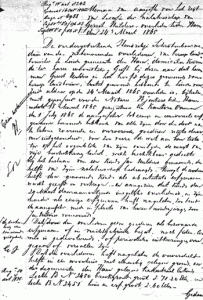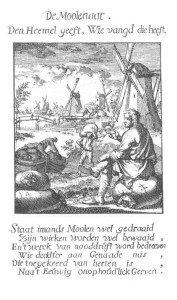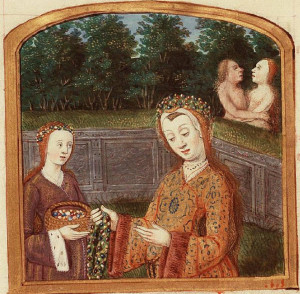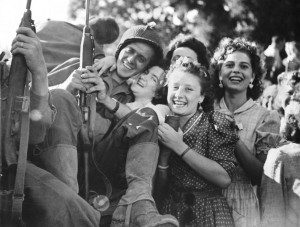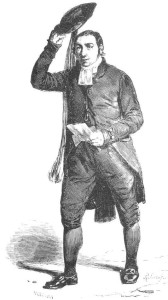A familiewapen is a family crest or coat of arms. Most people in the Netherlands did not have a coat of arms. People who used them were usually members of the nobility or other members of the upper class. Working class families did not have a use for a crest. There are several heraldic databases and collections that will tell you whether a coat of arms exists for a particular name. Even if you find a crest for your name, that does not mean that your family ever had any right to use it, as … [Read more...]
Quick tip: “levenloos” is not a first name
In some trees, you will see the name 'Levenloos' as the first name. However, 'levenloos' means 'lifeless' and is used to indicate stillborn children. Read more about the term levenloos. … [Read more...]
Dutch term – Vader
The Dutch word vader means 'father.' Finding fathers can be difficult if the parents weren't married. Some tips: Check the birth record to see if the margin has any notes about the child being recognized by a father later in life. This need not be the biological father but it can be a good clue. Check population registers (since 1850) to see whom the mother was living with. Check church council minutes to see if the mother was censored. Do an autosomal DNA test. This is particularly … [Read more...]
Dutch term – Pinksteren
The word 'Pinksteren' is Dutch for Pentacost, a religious holiday. In the Netherlands is it celebrated on Pentacost Sunday and the following day. Pentacost Monday is an official holiday and most of the people in the country have the day off. Nowadays, many people take the opportunity to go to a music festival, go to the beach or attend some traditional fairs. In earlier times, Pinksteren was a typical time when people became confessed members of the Dutch reformed church, together with … [Read more...]
Dutch term – Zomermaand
Zomermaand literally means "Summer month" and is the old word for June. … [Read more...]
Dutch term: Memorie van Successie
A Memorie van Successie (literally: memorial of succession) is a death duties file. To determine the inheritance tax due after a person died, the heirs had to file a Memorie van Successie. Read more about Death Duties Files and how to use them for your research. … [Read more...]
Dutch term: Molenaar
A molenaar was a miller. There were different types of mills. Besides the classic Dutch wind-powered mill, there were also horse-drawn mills and water mills. Mills could be used for different purposes, the most common being grind grain or to drain water from low-lying fields. People could not just build a mill, that right was reserved for the landlord. Before the 19th century, most millers did not own the mills that they worked, but worked for the landlord. The French occupation put an end to … [Read more...]
Dutch term – Bloeimaand
Bloeimaand (literally: bloom month) is the old word for May. … [Read more...]
Dutch term – Bevrijding
Bevrijding means 'liberation.' On 5 May 1945, the Netherlands was liberated from the German occupation. Every year on this day, we celebrate "Bevrijdingsdag" (Liberation Day) to commemorate this event. … [Read more...]
Dutch term – Bode
A bode was a messenger, which can sound like an errant boy but it was a far more important function than that. The best approximation is probably a bailiff, someone charged with delivering important documents and news and making sure that the other party receives it. They had a wide array of tasks, ranging from taking messages to organizing public tenders and contracts. Bodes were usually employed by government bodies, like city councils, poor administrations and the States-General. … [Read more...]
